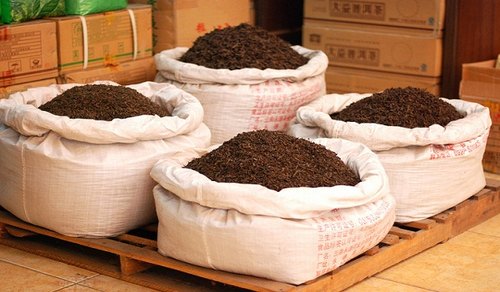Steps For Exporting Tea From Nigeria: A Guide for Small-Scale Farmers
Steps For Exporting Tea From Nigeria: A Guide for Small-Scale Farmers
Nigeria produces more tea than any other African country. This is due to the many small-scale farmers who are involved with growing it. The potential for growth of this industry is very high, given Nigeria’s mild climate and ideal altitude for the production of tea. With that said, there are a few things they can do to improve its export market share.
Here, are some steps they can take to help their country grow into a major player in the global tea market.
Improve the quality of Nigerian tea
One of the easiest ways to improve Nigeria’s tea export market share is to improve the quality of the product. One way to do this is to focus on the quality of the leaves. The quality of the leaves can be improved by harvesting them at the right time. The time to harvest should be determined by the age of the leaf and the weather conditions.
It should also be noted that, when it comes to harvesting, plants need to be harvested in batches. This keeps their leaves fresh and prevents them from wilting.
Another way to improve the quality of Nigerian tea is by improving the conditions in which it is grown. Farmers should invest in pesticides to reduce the chance of pests entering their crops. They should also invest in fertilizers to increase crop yields and improve soil quality.
Improve access to export markets
To help your country’s tea industry grow, you need to improve access to export markets.
Nigeria’s tea industry will only see growth if they can export their tea. The United States has a $3 billion tea market and is showing signs of growth. This is a good opportunity for Nigeria to take advantage and become a major player.
But how do they get their tea to these markets? They need to improve the logistics and infrastructure needed to move the tea from the producer to the distributor.
To do this, Nigeria needs to build roads and hire truck drivers. The country also needs well-equipped customs offices and warehouses. It needs to modernize the way it exports its tea.
These changes will make it easier for businesses in Nigeria to export their goods all over the world, which will mean more money for the country and more jobs for its people.
Build a better relationship with customers
One of the first steps you can take to improve your tea export market share is to build a better relationship with your customers.
In order to do this, you should consider offering free samples. This will help you get your product in front of potential buyers and give them the opportunity to try it. It also gives them a chance to get a feel for your company and whether or not they want to do business with you.
If you’re running a small-scale operation, it may be difficult for you to supply these free samples. Consider setting up a website and email list. This way, you can send out free samples periodically and stay connected with customers.
You should also be sure that you maintain an exemplary customer service record. You want people to know that they can rely on your business to provide high-quality products and excellent customer service.
Title: How to Make Your Own Blog
Create a more efficient and easy-to-use process for exporting tea
Tea is a perishable product, and in order to export it, it must be exported quickly. One way to reduce the time it takes to export tea is by improving the efficiency of FOBs.
FOBs are the documents that are typically needed for export. They can be a lot of work for small-scale farmers, especially because they have to find a broker and then get the paperwork done for that broker.
In addition to that, dealing with brokers can be a long and tedious process. It also causes a lot of confusion for the tea farmers.
It would be a lot easier if there was a simple system of transferring the tea from the farmer to the buyer’s warehouse. The process would be a lot less confusing and allow for a faster turnaround.
This would also reduce the risk of fraud, which happens when brokers take money from farmers and don’t actually deliver on their promise of getting the tea exported.
In addition to this, it would help small-scale farmers receive more profits from exporting their tea. This is because they wouldn’t have to have a middleperson who takes a cut of their earnings.
Maintain high standards of quality and assurance
One of the steps small-scale farmers can take is to maintain high standards of quality and assurance. This will allow them to export their tea to countries like Japan and Saudi Arabia, which have strict requirements for the production of high-quality tea.
When dealing with large-scale companies, it’s important to provide accurate information about origin, quality, and the company’s performance. They should also be able to produce a certificate of origin and a certificate of tea production. A certificate of origin is a document that certifies that the product was derived from a certain place and produced by a certain company.
The certificate of tea production is a document that certifies that the tea was made in a certain way that meets international standards. These documents are necessary for international trade.
To get these documents, the small-scale farmers should invest in quality control tools. This will allow them to monitor their processes and produce higher-quality tea.
Reduce the risk of contamination
Moisture is the enemy of tea. If it’s too wet, the tea will go bad. If it’s not wet enough, the tea will be of low quality. To avoid this, make sure to dry your tea before packaging.
Also, make sure to package your tea in an airtight container. This prevents moisture from getting in!
Paragraph: Reduce the risk of contamination
Subheading: Use more sustainable farming techniques
Paragraph: Small-scale farmers in Nigeria use some very harmful farming techniques. They use pesticides that are toxic for humans and animals, and they cut down their forests to grow more tea. By changing these practices, they can produce better quality tea while also reducing the amount of pesticides entering the water supply.
To avoid this, some small-scale farmers are using sustainable farming techniques like crop rotation and integrated pest management. These methods minimize the amount of pesticides used and lead to better quality tea leaves.
Control pests and diseases
There are many pests and diseases that are prevalent in tea farms. One of the most problematic is the tealeaf rust, which can cause significant crop losses.
Tea plants are susceptible to infestation by insects, bacteria, fungi, and viruses. The best way to control pests and diseases is to plant disease-resistant varieties, use organic farming methods, apply pesticides, and implement a quarantine program for imported plants.
Small-scale farmers should also make sure their fields are well-drained, irrigated, and fertilized. These things will help reduce the risk of pests and diseases.
Another issue farmers face is the lack of cash flow to purchase the chemicals they need for their crops. This is why they should consider organic farming methods. They will need less pesticides to protect their tea plants.
Organic tea is becoming more popular in Nigeria due to its higher quality and lower prices in comparison to regular tea. They may see better profits by switching to organic farming methods.
Conclusion
One of the most important steps to take is to improve the quality of tea that is currently being exported. This would lead to an increase in market share for tea from Nigeria.
The more tea exported, the more the world will learn about the quality of tea produced in Nigeria. The more they export, the more people will be able to associate Nigeria with high-quality tea.
Another important step is to increase the amount of land devoted to growing tea. Since more land will lead to an increase in production, this would allow Nigeria to generate more revenue. Additionally, they should focus on exporting teas that are unique to Nigeria, like its iced teas.
Nigeria has many great opportunities when it comes to exporting tea. By taking these steps, they can become a major player in the global tea market.








LEAVE A COMMENT
You must be logged in to post a comment.